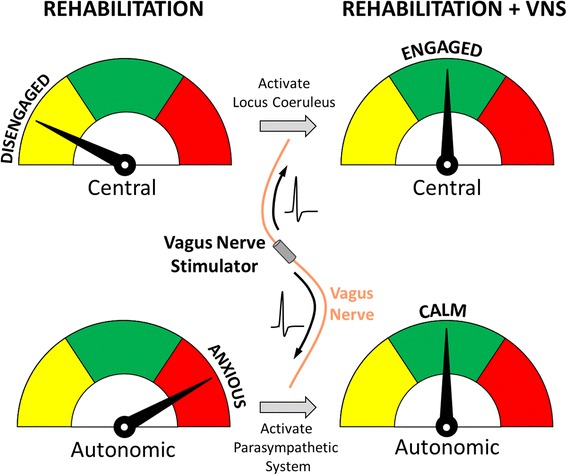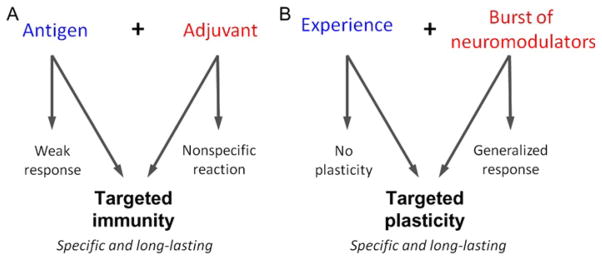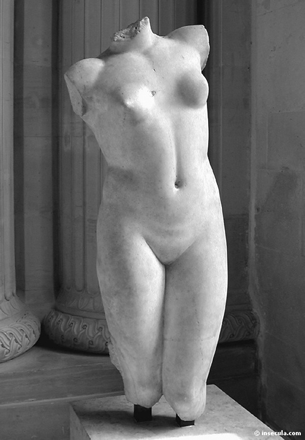I'm in middle to Unforgiven (book 2). There was a scene so unbelievable that it really was absurd to me.
I too thought that that was the lamest excuse for what followed.
 The book gets better though. Just not soon enough
The book gets better though. Just not soon enough 
I'm in middle to Unforgiven (book 2). There was a scene so unbelievable that it really was absurd to me.
 The book gets better though. Just not soon enough
The book gets better though. Just not soon enough 

hahaha that's funny, I suppose it was kind of lame.I too thought that that was the lamest excuse for what followed.The book gets better though. Just not soon enough

A Very Happy ending! What woman could not forever love a man that would sacrifice everything for her? But, what woman would ever allow a man to sacrifice everything for her? I wish there was an epilogue. Clara would be the most amazing Duchess. Diego would shine with her by his side. I guess that might be the fairytale ending, but true love did prevail. And that is a Happy Ending.It's interesting how differently you can see it.For me it was clearly a happy ending and the "sacrifice" he had to make was possibly exactly the happy ending. Since it's been a while since I watched the series, I just rewatched the last episode and the ending because I doubted my judgement. But exactly what happened was what I wanted, it was what you actually knew from the first episode. And what she showed him and made him aware of. That's why I don't see it as a sacrifice, but as a happy ending.


In these fragments, the essence of "suffering with purpose: an opportunity as an opening to others" (as I learned from Viktor Frankl) is illustrated. The girl ran away from her past, but there is no place to escape to because the past is no longer a physical place, it is a kind of field of experience. We cannot change it but we can change the way we perceive it with more understanding. We cannot run away from experience, that would be like running away from ourselves. In fact, when you run away from your "problems" they follow you, like our shadow. The lesson presents itself and, if we don't take it, it seems to come back and manifest itself with greater intensity until we decide to take the lesson. Sure, we can sweep under the rug for a good while what comes our way in "trouble" mode to broaden our experience. But not for long...at some point we have to take the lesson."But he realized that one could never go back, never truly desire to go back, because once one expanded one's personal experience you could no longer be satisfied with the more limited experience".
"I look at you and I marvel that your experience
has not embittered or hardened you. You are much stronger and more independent than you were before, aren't you?
-I like to think so. I think I'm more aware than I used to be that my life is in my own hands, that I can't blame other people for anything that goes wrong in it.
Reflection on Adam's wife:
"Given that all the happiness she had been taken away from her, she could have concentrated on giving happiness to other people.
But Sybil did not have a strong character. If she had been given happiness, she would no doubt
she would undoubtedly have remained sweet all her life. But she was a person who wanted to receive,
not give, and once everything she wanted had been taken from her, there was nothing left in her life but bitterness and hatred and a desperate search for sensual gratification
On the other hand, I discovered where this nostalgia comes from that invades me, so to speak, when I leave this "life" that came to life in my imagination. I feel something like "little deaths" in each fictional life and I have to repeatedly say goodbye to those places and those people. I miss them... but, with each new story, another life unfolds again, with other circumstances, other surroundings, other people and.... it's like a new incarnation!The girl's attitude is transcendent. She became aware of the fact that her life is in her own hands and that we should not delegate responsibility by blaming the world for how badly we are doing. It is a courageous attitude to take charge of one's own life. Each novel is in itself a new life, a new opportunity to explore those places we might not otherwise discover in the unfolding of this present life. It's like an accelerator of new lessons.
To me, Adam is a wonderful being. A responsible and compassionate being. A conscientious and generous being. Indeed, his attitude is very important for everyone who came in contact with him. It reminds me of what Putin said about power: it is a responsibility. And Adam acts justly and has a well-developed sense of external consideration. Of course he has his dark side, which he manages with a lot of effort and the fruits of this effort result in a functional human being who is not a burden to others (unlike his wife). He has suffered much and was transformed by this pain. He listens to the voice of the "predator's mind" but does not succumb to its call. I learned a lot from the virtues of this character. I admire him a lot!
Now, if one finds oneself in a dead end, the "exit" is at the "entrance". Turning around and facing the problems (lessons), makes that "entrance" become the "exit". Generally, we do not count on the help that others can give us. We remain stagnant, locked in our own sufferings and we do not share them, above all, for fear of being judged, not being understood, fear of losing the affection and sympathy of others. This attitude shows that we are centered on ourselves (internal consideration). Suffering is a two-way avenue, it can be self-centered or opening up to others by being more empathetic people.what we do with the pain is what makes the difference."Acting as a group can be important to the process. A single individual can wear himself out by continually defending his position, also a group can focus "higher energies" more effectively than an individual. This is not a case of mass mentality but of strength in unity of purpose. An isolated individual's way of thinking and perceiving can more easily change to match that of the attacker, thus diminishing the STO alignment of the attacked."



I just tried it, Stella Marys, and it seems to be working just fine. Perhaps it's easier for you to put in a spoiler manually? First you write:PS: Can you explain how to use the spoiler? I marked the part to make the publication in the spoiler. Then I placed the text and apparently it was fine. But it didn't. I did something wrong

I finished Indiscreet, book 3 of Mary Balogh's Horsemen trilogy. I learned something that I wasn't able to from the forum previously.
Love comes to people through many different ways. Some people need to look for love. Some people need to make themselves available to find love. Some people are not looking for love and yet love strikes them like a thunderbolt. So I understand more why some people say don't look for love, because those people who say it are not made to look for love but are made to get struck by it when they are not looking. And I understand more why I say go look for love or else it won't be found, because I was made to make myself available and go find love.

Thank you Mariana for your guidance!I just tried it, Stella Marys, and it seems to be working just fine. Perhaps it's easier for you to put in a spoiler manually? First you write:then the text and then:
again
and voilà, you have your own spoiler!
Make sure you use the correct brackets.
 I will take your suggestion into account in my next post. My monitor is wearing out and maybe this is the reason I didn't see that the spoiler was posted properly. I almost work "feeling around" the monitor guessing where some icons are located. Almost Braille.
I will take your suggestion into account in my next post. My monitor is wearing out and maybe this is the reason I didn't see that the spoiler was posted properly. I almost work "feeling around" the monitor guessing where some icons are located. Almost Braille.
 Regards
RegardsOne hint I will give at this point is this: the books are designed to stir up the sex center; to engage some emotional suffering (Cs said suffering can modify DNA and that might be even more the case with some sexual energy fuelling the process); and then bring the two (sex center, emotional center energy) up into the heart/mind with appropriate resolution toward true love, giving, devotion, etc.
Once I saw this pattern, I realized that a substantial number of repetitions of this process, all within the body/mind could quite easily bring about some kind of reset of emotional energy at a higher level.
You could even say that this kind of reading - selected books only - is something like neurofeedback only for the emotions; it can quite possibly transmute lower emotions to higher ones.
Q: (L) Why should we take the Melatonin?
A: Is mild hallucinogen.
Q: (L) Why do we need this?
A: Keeps exercising psychic abilities and opens paths. Don't be alarmed by vividly erotic dreams.
Q: (L) Should we expect to have vividly erotic dreams?
A: Possible as psyche passes through levels on ascension.

The dual action of VNS in providing both a neural plasticity reinforcing stimulus through activation of ascending pathways and a calming parasympathetic input through activation of descending pathways is a unique property that may confer benefits not currently available with pharmacological interventions. Drugs that activate neuromodulatory systems can enhance learning but often promote anxiety, opposing parasympathetic activation. Alternatively, anxiolytic drugs tend to interfere with plasticity and blunt the benefits of rehabilitation.

Vagus nerve stimulation as a potential adjuvant to behavioral therapy for autism and other neurodevelopmental disorders
Many children with autism and other neurodevelopmental disorders undergo expensive, time-consuming behavioral interventions that often yield only modest improvements. The development of adjunctive interventions that can increase the benefit of rehabilitation ...www.ncbi.nlm.nih.gov

Vaccination and targeted plasticity therapy are based on similar principles. (A) Injection of an antigen alone causes a generally weak immunologic response. Injection of an adjuvant alone causes a nonspecific inflammatory response. Many different compounds can act as adjuvants, including aluminum salts, virosomes, or saponins. Concurrent presentation of the antigen and adjuvant results in a significantly enhanced immunologic response beyond that evoked by either element alone, resulting in specific and long-lasting immunity. (B) Targeted plasticity therapy is based on similar principles of synergism. Experience alone drives activity within circuitry but does not result in plasticity. Neuromodulators alone have generalized neuronal effects, but do not drive lasting changes. A variety of factors can cause release of neuromodulators, including attention, pain, or VNS. When bursts of neuromodulators correspond with experience, specific and long-lasting plasticity results.

Targeting Plasticity with Vagus Nerve Stimulation to Treat Neurological Disease
Pathological neural activity in a variety of neurological disorders could be treated by directing plasticity to specifically renormalize aberrant neural circuits, thereby restoring normal function. Brief bursts of acetylcholine and norepinephrine can ...www.ncbi.nlm.nih.gov

One of the characters participating in Plutarch’ Symposiakon (Table Talks) draws his commensals’ attention to the fact that ‘Salt encourages remarkably generation’. Plutarch insisted on the generative power of salt by giving a few examples. Egyptian priests, who are professing chastity, were known to ‘avoid salt, as being by its heat, provocative and apt to raise lust’. ‘Those that breed dogs, when they find their bitches not prone to be hot, give them salt and seasoned flesh, to excite and arouse their sleeping lechery and vigour. Besides, the ships that carry salt breed a profusion of mice’. Females are quickly pregnant. ‘It is probable that salt rises an itching in animals, and so makes them salacious and eager to couple’ [5]. Such an allegation echoed Aristotle's History of animals. ‘Some people say, indeed stoutly maintain that, if they merely lick salt, mice become pregnant’ [6]. Even if the information fails to explain perfectly the phenomenon, its prescience predicts that salt intake has something to do with sexual maturity, desire, copulation, gestation periods and litter of rodents.

Aphrodite, sex and salt—from butterfly to man
For thousands of years, the merits of salt were considered with high esteem. It made meals palatable and served as an efficient food preservative. It is only inacademic.oup.com
